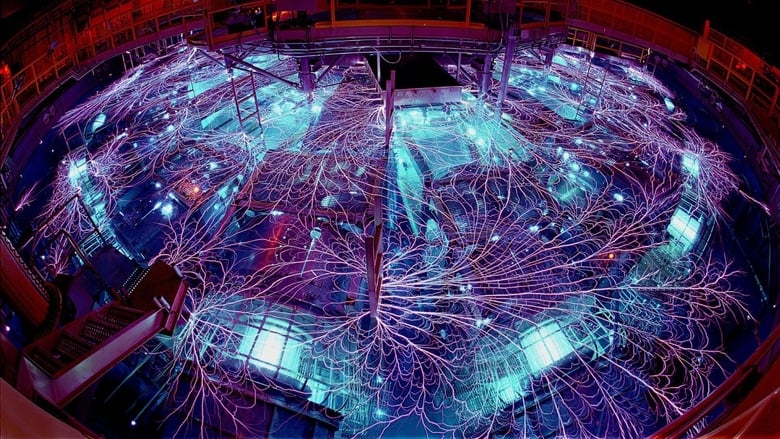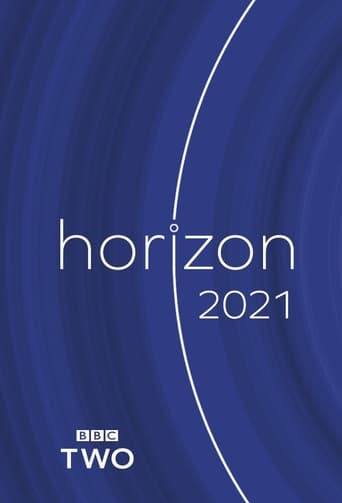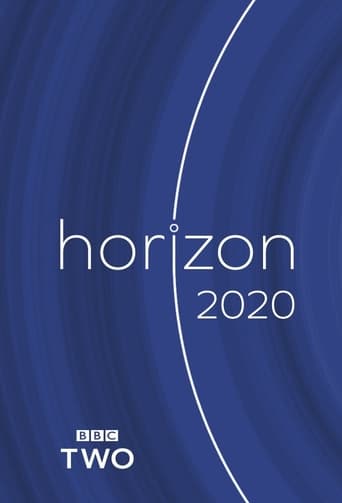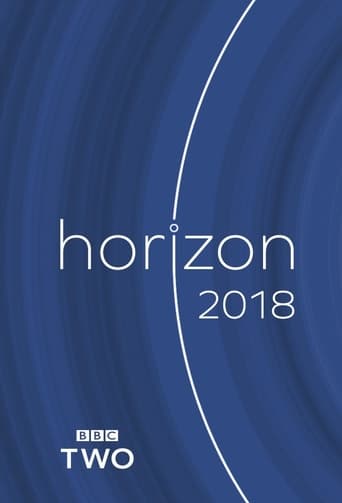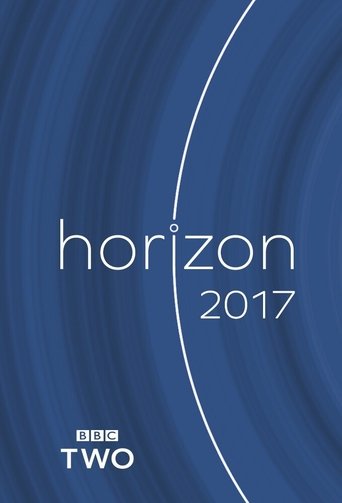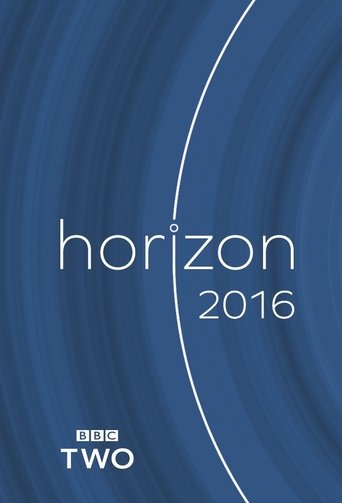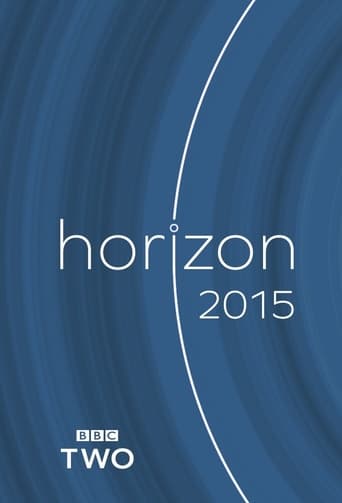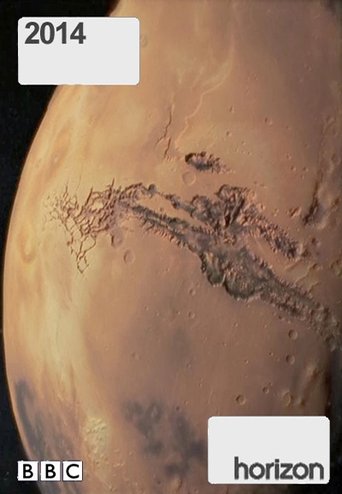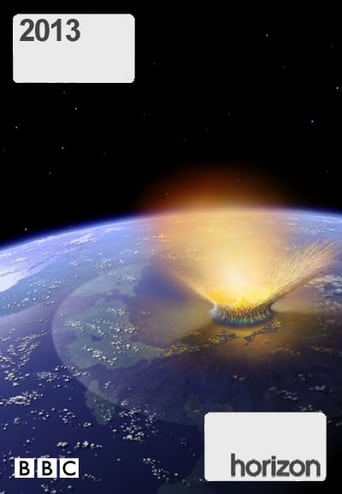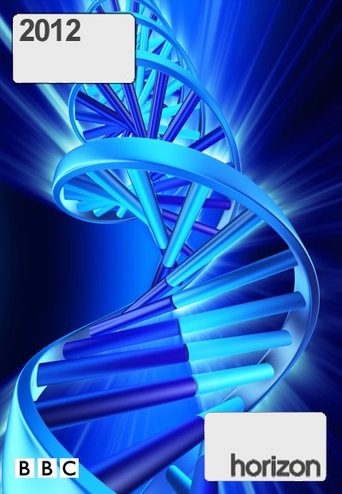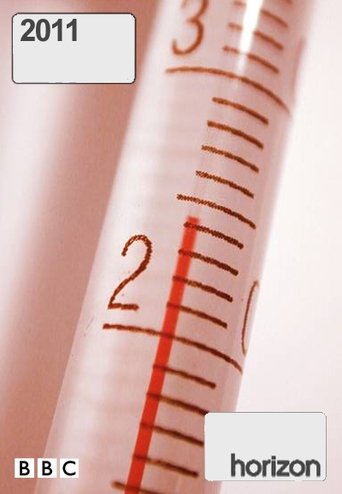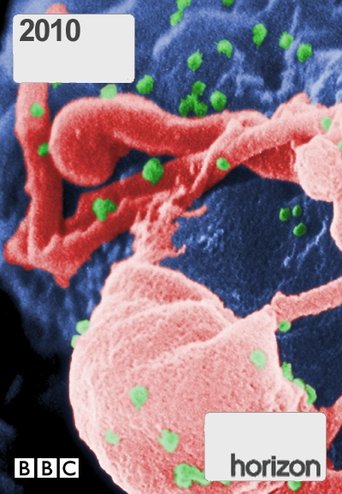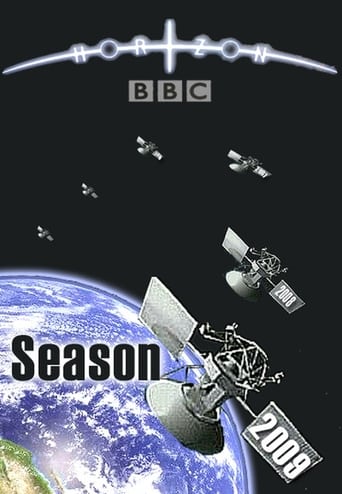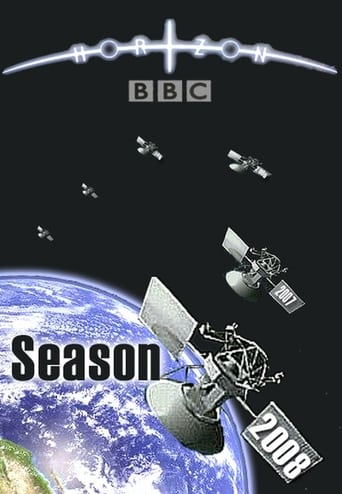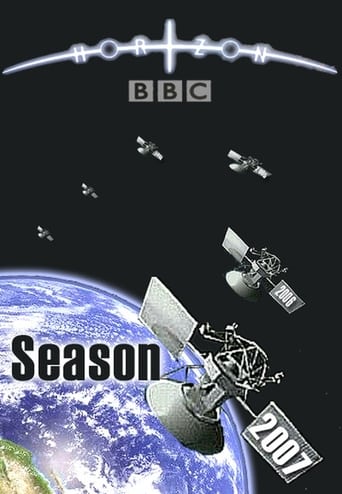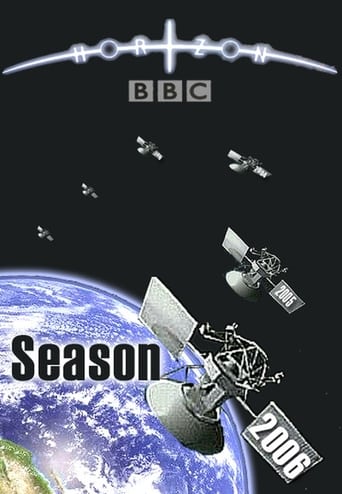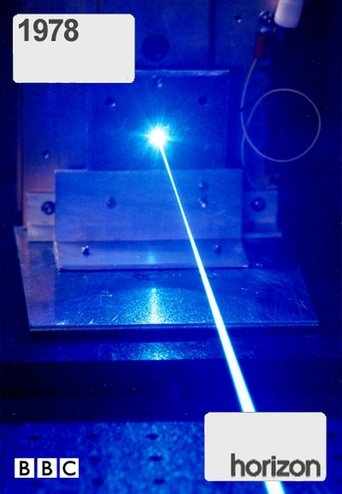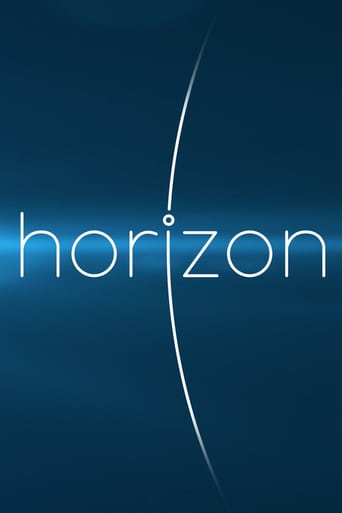
Trailer
Synopsis
Horizon tells amazing science stories, unravels mysteries and reveals worlds you've never seen before.
Episode 18 : Dr Money and the Boy with No Penis
November. 04,2004
Episode 17 : The Hunt for the Supertwister
October. 28,2004
Episode 16 : Saturn - Lord of the Rings
October. 21,2004
In 1610, Galileo used a new invention -- a simple telescope -- to look at Saturn. When he viewed the planet for the first time, he saw something strange. He thought he saw three stars together, a big one in the middle of two little stars. He knew they weren't really stars, but what were they?
Episode 15 : Making Millions the Easy Way
October. 14,2004
In the mid-1990s, a team of American science students took on the might of the Las Vegas casinos, and came home with millions of dollars. Hard working engineering students during the week, they became high-rolling gamblers by the weekend and proved that, in one game at least, the house doesn't always win.
The game was blackjack, and the students were from the world-renowned Massachusetts Institute of Technology (MIT). Their audacious winnings marked the climax of an arms race between casino and player that began 40 years earlier with maths professor Edward Thorp. He realised that the one feature of blackjack that made it different from other casino games also made it possible to beat.
In most gambling games - roulette, dice, slot machines, the lottery - events in the past do not determine the future. The odds are the same on every roll of the dice or spin of the wheel. Winning streaks or losing streaks may occur, but they are only one possible result from the set of all possible outcomes. A fair coin that has shown heads ten times, still only has a 50% chance of showing heads on the next flip.
Casinos and bookmakers make certain that the odds are always stacked slightly in their favour. In other words, over time, the house will always win.
Episode 14 : What Really Killed the Dinosaurs?
October. 07,2004
Until recently most scientists thought they knew what killed off the dinosaurs. A 10km-wide meteorite had smashed into the Yucatan peninsula in Mexico, causing worldwide forest fires, tsunamis several kilometres high, and an 'impact winter' - in which dust blocked out the sun for months or years. It was thought that the dinosaurs were blasted, roasted and frozen to death, in that order.
But now a small but vociferous group of scientists believes there is increasing evidence that this 'impact' theory could be wrong. That suggestion has generated one of the bitterest scientific rows of recent times.
Episode 13 : Derek Tastes of Earwax
September. 30,2004
Is Wednesday red? Take part in our experiment to test whether your senses overlap.
Do melodies have a colour? Take part in our experiment to test whether you hear colours.
Imagine if every time you saw someone called Derek you got a strong taste of earwax in your mouth. It happens to James Wannerton, who runs a pub. Derek is one of his regulars. Another regular's name gives him the taste of wet nappies. For some puzzling reason, James's sense of sound and taste are intermingled.
Dorothy Latham sees words as colours. Whenever she reads a black and white text, she sees each letter tinged in the shade of her own multi-coloured alphabet - even though she knows the reality of the text is black and white. Spoken words have an even stranger effect. She sees them, spelled out letter by letter, on a colourful ticker tape in front of her head.
Both James and Dorothy have a mysterious condition called synaesthesia, in which their senses have become linked. For years scientists dismissed it, putting it in the same category as séances and spoon-bending. But now, synaesthesia is sparking a revolution in our understanding of the human mind.
Two synaesthetes seldom agree on the colours or tastes they experience. While Covent Garden may taste of crinkly chocolate to James, it's very unlikely to have the same taste for another synaesthete. And Dorothy's brother Peter, also a synaesthete, won't see M or Z in the same colour as she does. But despite these differences, scientists are now beginning to discover more and more overarching synaesthetic patterns.
Dorothy doesn't only see letters and numbers in colour. Music produces a riot of colour, too. As Dorothy hears notes going from low to high, her colours change from black and purple to mid-browns and then yellows and whites. Overall, lower notes evoke darker colours and higher notes brighter colours - and this pattern is true for most synaesthetes.
But surprisingly, when non-synaesthetes are asked to match colours and music, they show a similar pattern. Most of us seem to associate low notes with darker colours and high notes with brighter colours.
The evidence of the synaesthete in all of us doesn't end here. Another clue comes from the way we manipulate numbers. More than half of all synaesthetes who see coloured numbers also experience their numbers arranged in space around them. Heather Birt is such a synaesthete, and she's followed by a stream of numbers wherever she goes.
Recently, scientists started to investigate how non-synaesthetes deal with numbers. They found they're better at manipulating small numbers with their left hand, and their bigger numbers with our right hand. This suggests that we all somehow think of numbers as arranged in space, even if we're not aware of it. More evidence, it seems, that we're all synaesthetic to some degree. It's just that some people experience a more exaggerated version.
A few scientists believe that synaesthesia might even explain how we evolved two of the traits that define our species and have transformed our world - creativity and language.
Many famous artists have been synaesthetes - the jazz legend Miles Davis, for instance, and the painter Kandinsky. In fact, a number of studies suggest that synaesthesia may be more common among artists, poets and musicians. This has led some scientists to argue that synaesthesia and creativity may share a similar basis - that both may be down to brain processes that involve linking two seemingly unrelated areas.
Some believe that our common synaesthetic abilities may also have been the springboard to language. Connections between our senses of hearing and vision, for example, could have been an important initial step towards the creation of words. Our earliest ancestors may have first started to talk by using sounds that actually evoked the object they wished to describe. According to this theory, language could have emerged from the multitude of synaesthetic connections within our brains.
Episode 12 : King Solomon's Tablet of Stone
September. 23,2004
Episode 11 : The Truth About Vitamins
September. 16,2004
Every year we spend £300 million on vitamin supplements, but do they actually do us any good? Some believe they offer the promise of preventing or even curing some of the world's biggest killers, such as heart disease and cancer. Others claim that taking large doses of some vitamins may in certain cases be harmful. So what are the facts?
Nearly 40 years ago, one of the greatest scientists of the 20th century and double Nobel Prize winner, Linus Pauling, revolutionised the way people thought about vitamins. He claimed that by taking huge doses of vitamin C you could prevent or even cure the common cold.
He predicted that if everybody followed his advice, the common cold could even be eradicated. Many scientists dismissed his theory as quackery, but the public loved it and it helped launch a huge industry. But the latest evidence shows the great man was mistaken. Vitamin C can help you once have got a cold, but for most people it does nothing to prevent you from catching one in the first place.
Even if large doses of vitamin C do not prevent the common cold, some claim that it can still offer a more profound benefit. It is one of a group of vitamins called anti-oxidants that some believe can prevent illnesses such as cancer, Alzheimer's and heart disease.
In 2004, scientists in the United States claimed that people could be missing any of the potential benefits of taking one of the world's most popular anti-oxidant vitamin supplements, vitamin E, because their bodies might not be absorbing it. But our own investigation suggested that the American scientists' conclusion could be mistaken.
While most safety experts believe that vitamins C and E can be taken safely even in quite large doses, there is worrying evidence that one form of another common vitamin, vitamin A, could be linked to osteoporosis, a debilitating bone disease.
If the theory is right it means that a person's diet, or some supplements that they take every day to improve their health, could actually be slowly and silently weakening their bones.
Episode 10 : The Truth of Troy
March. 25,2004
It's one of the greatest stories ever told. The legend of Helen of Troy has enchanted audiences for the last three thousand years. In May this year a Hollywood film staring Brad Pitt and Orlando Bloom will be launched in Britain. But is there any reality to the myth? Horizon has unprecedented access to the scientist with the answers.
Since 1988 Professor Manfred Korfmann has been excavating the site of Troy. He has never before spoken at this length. He has made amazing discoveries - how large the city was, how well it was defended and, crucially, that there was once a great battle there at precisely the time that experts believe the Trojan war occurred.
But who had attacked the city and why?
Horizon then follows a trail of clues - the ancient tablets written by a lost civilisation, the sunken ship rich in treasure, and the magnificent golden masks and bronze swords of a warrior people. The film reaches its climax in a tunnel deep beneath Troy, where Korfmann has made a discovery that may reveal, once and for all, the truth behind the myth.
The story that emerges is one of great passion - but not, it seems, about love.
Episode 9 : Project Poltergeist
March. 18,2004
This is the story of two genuine scientific heroes. For forty years, John Bahcall and Ray Davis were engaged in a single extraordinary experiment - to find out why the Sun shines. In the end they would triumph. Davis would win the Nobel Prize and, thanks to their work, a whole new theory about how the universe is put together may have to be created.
At the heart of this story is a tiny, utterly mysterious thing called a neutrino. Trillions of them pass through your body every second, touching nothing, leaving no trace. Yet neutrinos are one of a handful of fundamental particles in the universe, essential to every atom in existence and clues to what makes the Sun work. But their ghost-like quality made trapping and understanding them immensely difficult.
What then followed was a bizarre series of experiments. They led from a vat containing 600 tons of cleaning fluid, to a vast cavern in a Japanese mountain, to a hole in the ground in Canada two kilometres deep.
What they would reveal would stun the world of science. It seems that neutrinos may be our parents. They may be the reason why everything, including us, exists.
Episode 8 : T-Rex - Warrior or Wimp?
March. 11,2004
Tyrannosaurus rex - it's the scariest, meanest, most bewitching dinosaur of them all. Children are captivated by the sheer savagery of the teeth. Experts marvelled at the force of its bite - ten times more powerful than anything we know today. Movie makers made millions out of the terror it inspired. But could our picture of this monster be completely wrong?
Was T. rex in fact a slow lumbering creature, with hideously bad breath, that couldn't get anywhere close to catching a Triceratops. Was it really a scavenger that lived off the scraps left by others? Was T. rex, in fact, a wimp?
Featuring fabulous graphics and interviews with T. rex experts from around the world, Horizon looks at the new science that is challenging the legend of the dinosaur we love to hate.
Episode 7 : Diamond Labs
March. 04,2004
Top quality diamonds at knock down prices? The only catch is: these rocks don't come out of the ground, but are made in a lab. This is the promise offered by a series of recent scientific breakthroughs.
For most of us, it seems we may soon be able to bejewel ourselves like movie stars. But for De Beers, the world's largest diamond trader, could this, one day, be a serious threat?
Following a dodgy meeting in Moscow, retired US Army General Carter Clarke acquired some experimental diamond growing machines, originally destined for the Russian military. He created the world's first gem diamond production line, to mass produce highly prized coloured diamonds.
In a secret location south of Boston, a father and son team developed a different technique. Robert Linares and son Bryant have made colourless diamonds, allegedly higher quality than those found in nature.
De Beers, at vast cost, set up a new scientific division called the Gem Defensive Programme. Its goal: to find ways to tell apart their natural diamonds from these new synthetic gems.
But will the new synthetics slip through De Beers detection net? And could anyone really tell the difference? Horizon tells the story of the Diamond Labs.
Episode 6 : Thalidomide - A Second Chance?
February. 12,2004
Thalidomide was one of the biggest medical tragedies of modern times. The images of children born with shrunken limbs still haunt anyone who sees them. And the tragedy is not over. Those children are adults today, still coping with their disability.
For many, thalidomide is a drug that should be consigned to the dustbin of history - an awful cautionary tale of the errors that science can make. But now it is making a comeback - as a radical treatment for incurable blood cancers. But can it possibly be safe to use such a dangerous drug again?
In a powerful and deeply moving film, Horizon tells the tale of thalidomide and how this drug that has become so infamous may now be giving hope to people who otherwise face death.
It also explores the mystery at the heart of thalidomide. It seems that the reason why it works for cancer may at least partly explain something that has long baffled scientists - why thalidomide caused such terrible damage to babies in the womb all those years ago.
Episode 5 : The Dark Secret of Hendrik Schön
February. 05,2004
Imagine a world where disease could be eradicated by an injection of tiny robots the size of molecules. That is the hope offered by nanotechnology - the science of microscopically small machines. But others fear nanotechnology could lead to a non-biological cancer - where swarms of tiny nanobots come together and literally devour human flesh.
Sounds like science fiction? It certainly did until a brilliant young scientist called Hendrik Schön seemed to bring it a step closer.
Schön's great breakthrough was to make a computer transistor out of a single organic molecule. It was an achievement of almost incalculable brilliance. Some speculated this technology could spell the end of the entire silicon chip industry.
Crucially, Schön's transistor was organic. Suddenly, this seemed to be the first step towards true nanotechnology, where minute computers could grow as living cells.
Scientists speculated about how these tiny machines could be used to target diseases with astonishing precision. Others wondered - could the military use them as a new weapon? Others, including Prince Charles, were terrified. If these machines can grow by themselves, how do we stop them from growing?
What happened next would destroy reputations and shatter lives - because there was more to Hendrik Schön's discovery than anyone knew.
Episode 4 : Secrets of the Star Disc
January. 29,2004
This is the extraordinary story of how a small metal disc is rewriting the epic saga of how civilisation first came to Europe, 3600 years ago.
When grave robbers ransacked a Bronze Age tomb in Germany, they had no idea that they had unearthed the find of a lifetime. But they knew that it was worth selling. It was a small bronze disc of exquisite design. So they contacted the archaeologist Harald Meller, offering to sell it to him for €300,000.
Meller went deep into the criminal underworld and, after a police sting, he got his disc. It depicted the sun, the moon and the stars. This suggested an understanding of the heavens greater than that of the first great civilisations, like Egypt. Could it possibly be real?
After exhaustive tests, the disc was declared genuine. Then a team of crack scientists pieced together what it meant. What emerged is a true marvel.
This disc, it seems, is a Bronze Age Bible, combining an advanced understanding of the stars with some of the most sophisticated religious imagery of the age. In intellectual achievement and also age, it surpasses anything yet found in Egypt or Greece. It seems that civilisation had already dawned in Europe.
Episode 3 : The Atkins Diet
January. 22,2004
This is the truth about the world's most famous, most glamorous and most controversial diet. The Atkins diet says that eating fat can make you thin. It says you don't need to bother watching the calories. Rene Zellweger, Geri Halliwell and a host of other celebrities swear by it. But many scientists think it is scientific nonsense. Some even believe it is dangerous. Horizon cuts through the confusion and provide the answers.
When Dr Atkins first launched his diet, he was accused of breaking one of the most fundamental laws of nature. Scientists said that if you eat more, you'll get fatter. They also said it could kill. Fat increases your cholesterol levels. You'd get a heart attack.
The only problem was that people who followed the Atkins diet got thinner. Much of the rest of us got fatter. Then came studies showing that cholesterol levels can actually improve on the Atkins diet.
So what was going on? Horizon's investigation seems to show that the diet may really work - but for a reason and in a way that no scientists or even Atkins himself had seriously considered.
Episode 2 : The Moscow Theatre Siege
January. 15,2004
With the help of doctors and scientists in America, Germany and Britain, Horizon unpicks the mystery of the Moscow theatre siege.
In October 2002, Chechen terrorists took a thousand people hostage in a Moscow theatre and threatened to kill them. The problem was how to get them out alive. A bloodbath seemed inevitable.
Three days later Russian special forces stormed the theatre using a secret gas to knock everybody out. 129 hostages died - apparently killed by the very gas that was meant to save them. Horizon investigates the mystery substance, and why so many died.
The Russian authorities insisted their secret weapon was not lethal. The claim provoked contempt from the victims families, and incredulity among doctors and scientists around the world. But were the Russians actually right?
The Russians offered just one clue. And in Germany there was a scientist who had the means to test it: a urine sample taken from one of the survivors shortly after he was freed. Horizon follows as extremely sensitive tests are performed to find out if the Russians were telling the truth, and uncovers a deeper secret.
Episode 1 : The Demonic Ape
January. 08,2004
In a film that is in turns charming, disturbing and poignant, Horizon explores the relationship between science and the chimpanzee.
It began with a magical story. A young girl ventured alone into the jungle and befriended a group of chimpanzees. What she saw became the stuff of scientific legend. But then, last year came a terrible tragedy. Frodo, one of the chimpanzees she had helped make famous, killed a human baby. That shocking act brought into focus a huge debate about the relationship between humans and chimps, and what these primates have taught us about the origins of our own behaviour.
The saga of how Jane Goodall went into the jungle to study the chimps of Gombe in Tanzania has inspired novels and movies. Her observations revealed that chimpanzees were in many ways like humans. They used tools, had culture and even language. And what's more they had empathy. They were also capable of savage brutality against their own kind. Just like us.
In fact many began to think that the origins of aggressive human male behaviour could be traced back to our shared evolutionary ancestry with chimps. In other words, men are genetically programmed to be violent. But then came some disturbing questions.
Seasons
Similar titles
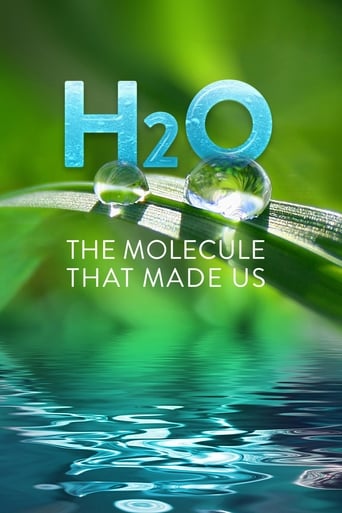
H2O: The Molecule that Made Us
A landmark, three-part series that tells the human story through our relationship to water. We find out how our success is intimately connected to our control of the molecule, but that the growth of our civilizations has also created a dangerous dependence on a precious resource. One that may be about to run out.

Prime Video
American Experience
TV's most-watched history series brings to life the compelling stories from our past that inform our understanding of the world today.
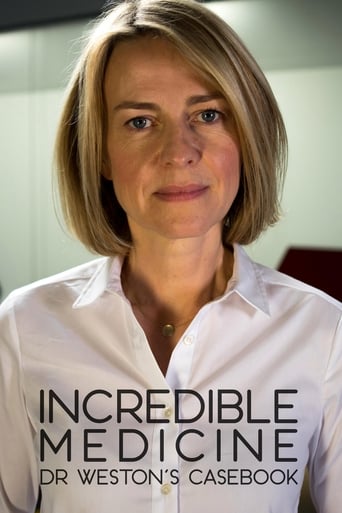
Incredible Medicine: Dr Weston's Casebook
Surgeon Gabriel Weston introduces us to people from across the globe with the world's most unique bodies.
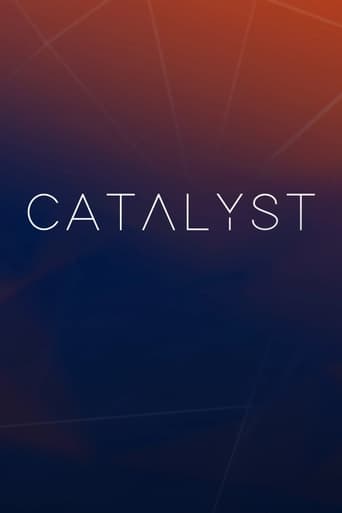
Catalyst
Catalyst is Australia's premier science investigation series. Each week the team brings you stories from Australia and around the world, meeting scientists at the forefront of discovery.
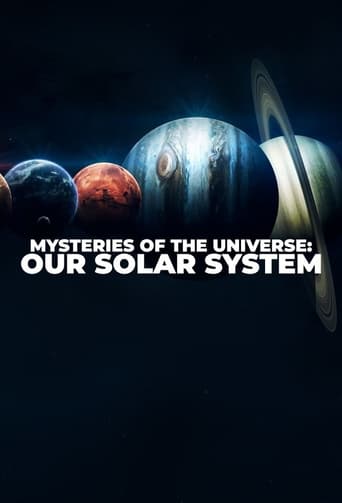
Mysteries of the Universe: Our Solar System
See the ultimate guide to the Solar System from the dedicated people who sent spacecraft to explore the sun and the planets, and witness their astonishing tales of discovery as they reveal wonders never seen before.
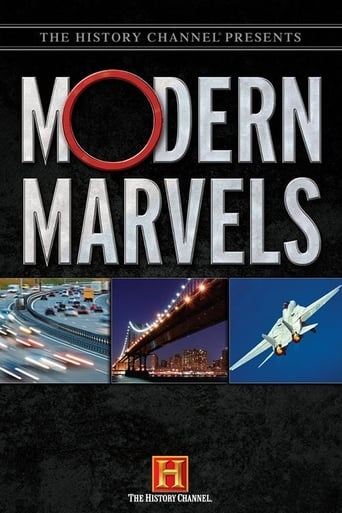
HISTORY Vault
Modern Marvels
HISTORY’s longest-running series moves to H2. Modern Marvels celebrates the ingenuity, invention and imagination found in the world around us. From commonplace items like ink and coffee to architectural masterpieces and engineering disasters, the hit series goes beyond the basics to provide insight and history into things we wonder about and that impact our lives. This series tells fascinating stories of the doers, the dreamers and sometime-schemers that create everyday items, technological breakthroughs and manmade wonders. The hit series goes deep to explore the leading edge of human inspiration and ambition.
Related
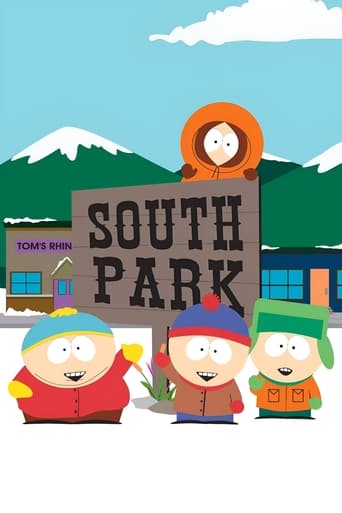
Max
South Park
Follows the misadventures of four irreverent grade-schoolers in the quiet, dysfunctional town of South Park, Colorado.

Prime Video
Mr. Robot
A contemporary and culturally resonant drama about a young programmer, Elliot, who suffers from a debilitating anti-social disorder and decides that he can only connect to people by hacking them. He wields his skills as a weapon to protect the people that he cares about. Elliot will find himself in the intersection between a cybersecurity firm he works for and the underworld organizations that are recruiting him to bring down corporate America.
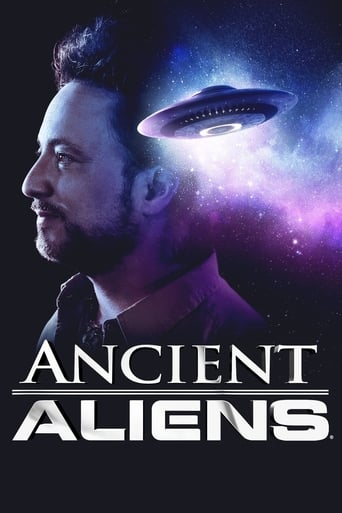
HULU
Ancient Aliens
Did intelligent beings from outer space visit Earth thousands of years ago? From the age of the dinosaurs to ancient Egypt, from early cave drawings to continued mass sightings in the US, each episode gives historic depth to the questions, speculations, provocative controversies, first-hand accounts and grounded theories surrounding this age old debate.
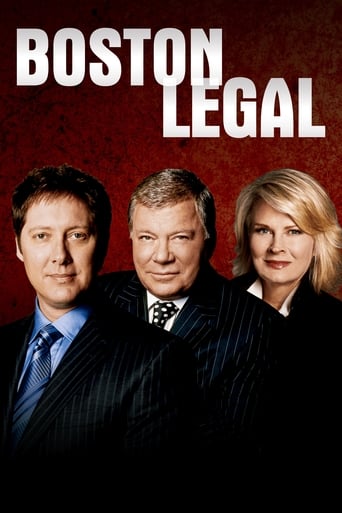
Prime Video
Boston Legal
Alan Shore and Denny Crane lead a brigade of high-priced civil litigators in an upscale Boston law firm in a series focusing on the professional and personal lives of brilliant but often emotionally challenged attorneys. A spin-off of long-running series The Practice.
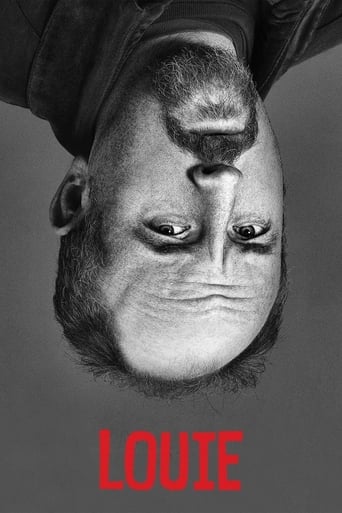
Louie
Louis C.K. stars as a fictionalized version of himself; a comedian and newly divorced father raising his two daughters in New York City.
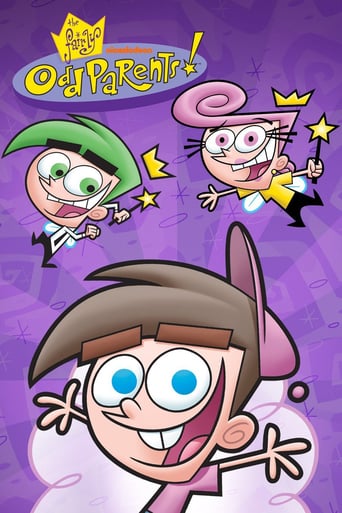
Paramount+
The Fairly OddParents
The zany, fast-paced adventures of a 10-year-old boy and his fairy godparents, who inadvertently create havoc as they grant wishes for their pint-sized charge.
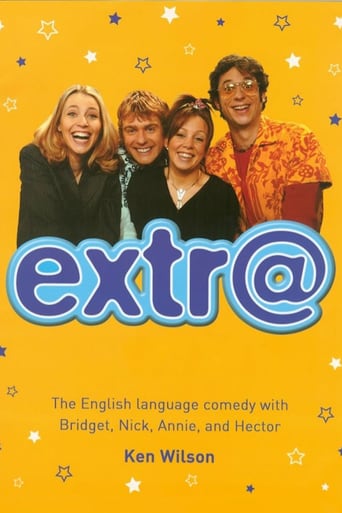
extr@
extr@ is a language education television series scripted in the format of a Friends-esque sitcom which was in production from 2002 to 2004, and is mainly marketed to the instructional television market for middle school and high school language classes. Four versions were made, each in a different language; English, French, German, and Spanish.
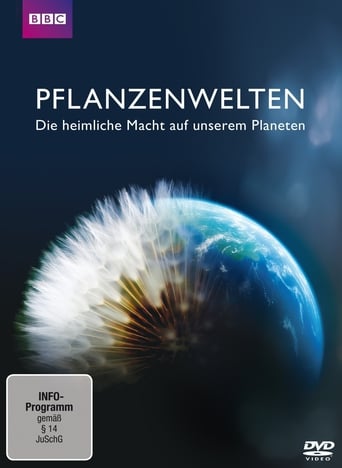
How to Grow a Planet
Geologist Iain Stewart explain in three stages of natural history the crucial interaction of our very planet's physiology and its unique wildlife. Biological evolution is largely driven bu adaptation to conditions such as climate, soil and irrigation, but biotopes were also shaped by wildlife changing earth's surface and climate significantly, even disregarding human activity.
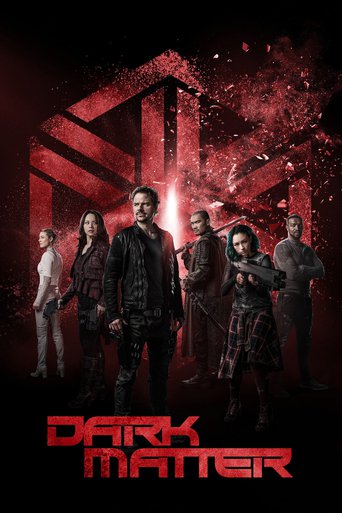
Dark Matter
The six-person crew of a derelict spaceship awakens from stasis in the farthest reaches of space. Their memories wiped clean, they have no recollection of who they are or how they got on board. The only clue to their identities is a cargo bay full of weaponry and a destination: a remote mining colony that is about to become a war zone. With no idea whose side they are on, they face a deadly decision. Will these amnesiacs turn their backs on history, or will their pasts catch up with them?
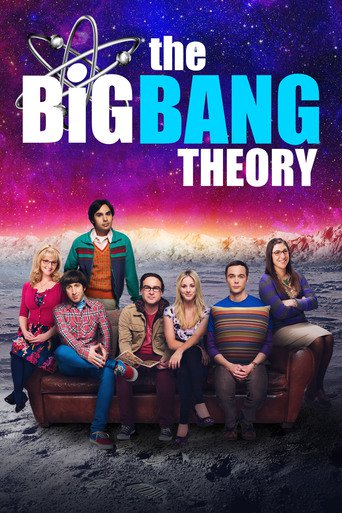
Max
The Big Bang Theory
Physicists Leonard and Sheldon find their nerd-centric social circle with pals Howard and Raj expanding when aspiring actress Penny moves in next door.
Top Streaming TV Show
#1
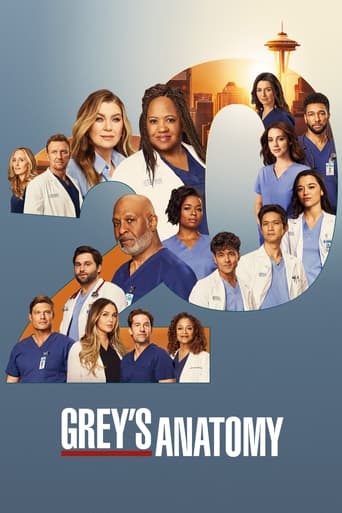
Grey's Anatomy
March. 27,2005
7.6
#2
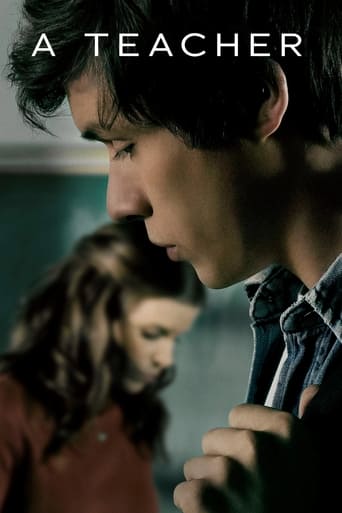
A Teacher
November. 10,2020
6.9
#3
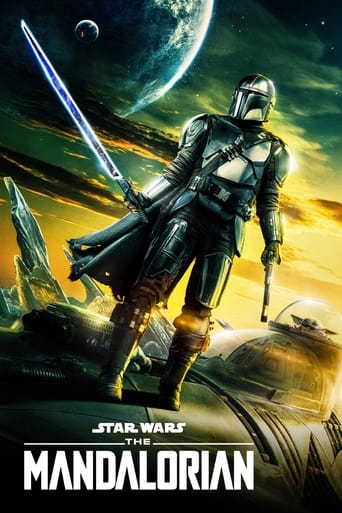
The Mandalorian
November. 12,2019
8.7
#4

Station 19
March. 22,2018
7
#5

Game of Thrones
April. 17,2011
9.2
#6
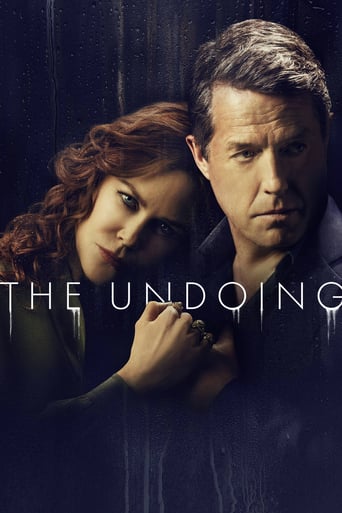
The Undoing
October. 25,2020
7.4
#7
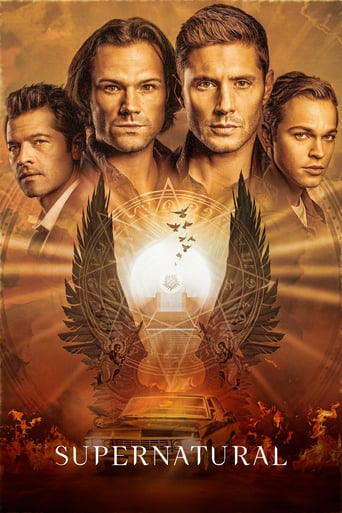
Supernatural
September. 13,2005
8.4
#8
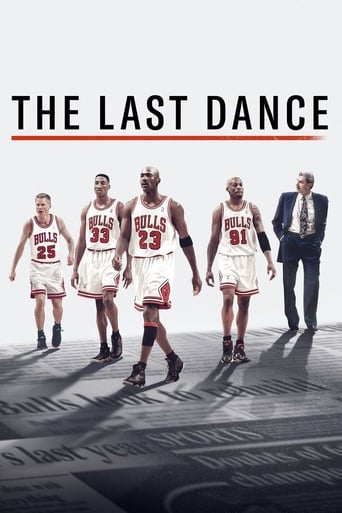
The Last Dance
April. 19,2020
9.1
#9

Euphoria
June. 16,2019
8.3
#10
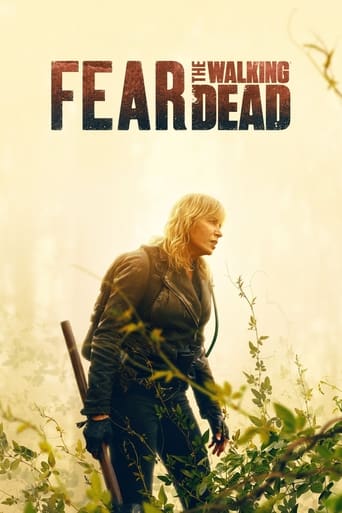
Fear the Walking Dead
August. 23,2015
6.8

